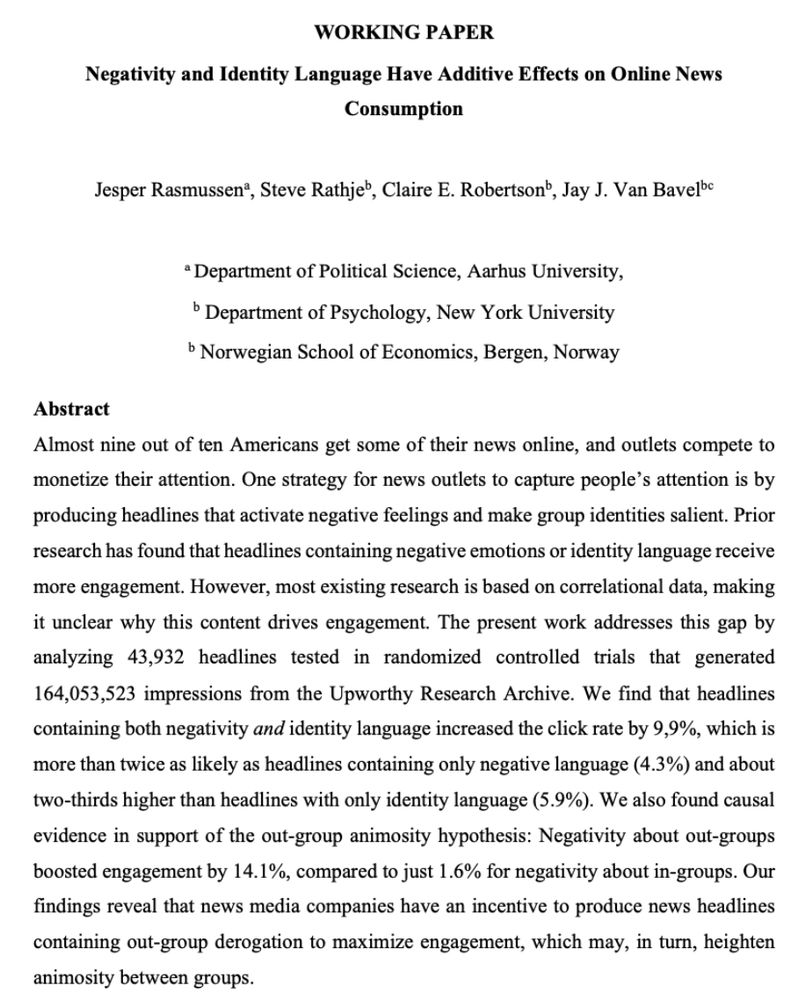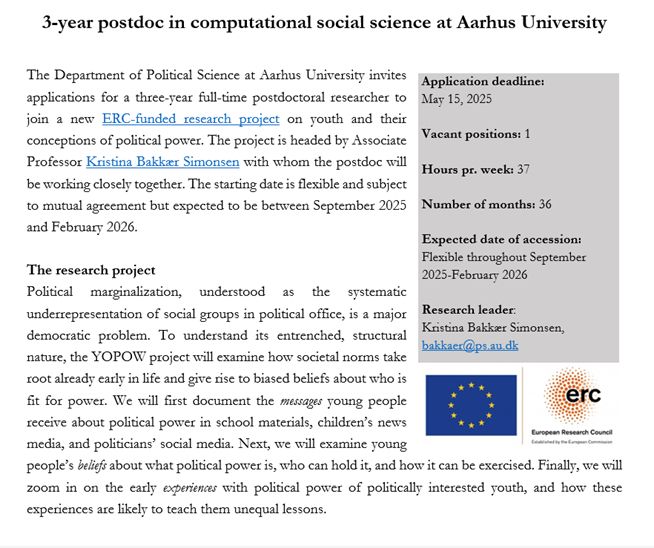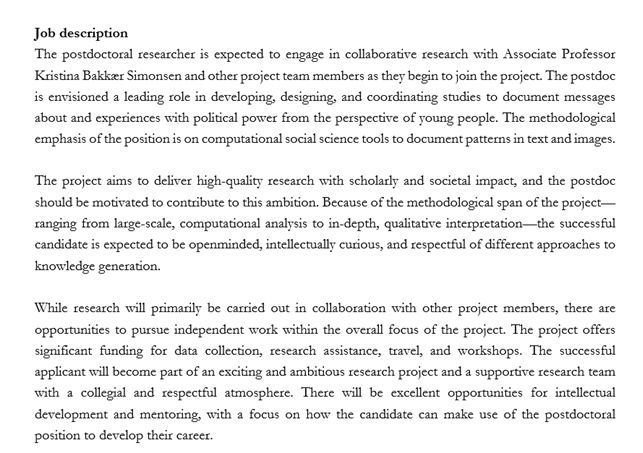@jesperrasmussen.bsky.social
210 followers
74 following
10 posts
Postdoctoral fellow at Aarhus University | PhD Political Science | Online political discussions, hostility and misinformation
Posts
Media
Videos
Starter Packs
Pinned
Reposted
EPSS
@epssnet.bsky.social
· Jun 26
Reposted
Reposted
Reposted
Reposted
Steve Rathje
@steverathje.bsky.social
· Feb 28
Reposted
Alex Coppock
@aecoppock.bsky.social
· Jan 30
Reposted












